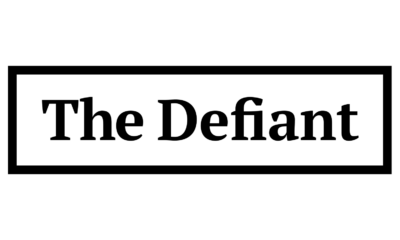News
Crypto’s Integration With Social Media Will Change Global Finance Forever

Guest post HodlX Submit your message
The direct integration of cryptocurrency payment methods into social media platforms is poised to revolutionize global finance as we know it.
This shift is supported by the large user bases and advanced anti-fraud measures on these platforms, promising to democratize access to financially inclusive offerings, particularly in developing countries.
Today, social media already plays an important role in the lives of billions of people – especially among Generation Z – and successful models like TikTok and WeChat only highlight its ubiquity.
Although there are challenges to integrating decentralized payments into social media platforms, the evolution of banking products and the ever-increasing adoption of cryptocurrencies signal a new era on the horizon of global finance.
This new era is based on the merger of blockchain-based payments and traditional social media platforms.
Gaps in the traditional banking system
Although robust, the traditional banking system often faces inefficiencies, such as high transaction fees, long processing times, and limited accessibility for the unbanked or underbanked.
These gaps hinder financial inclusion and create barriers for individuals and businesses in developing economies.
As a result, there is an increased demand for more agile, inclusive and cost-effective financial solutions.
Digital payments and cryptocurrencies are rapidly gaining ground as viable alternatives to conventional banking services.
In particular, cryptocurrencies are uniquely qualified to offer decentralized, borderless and transparent financial transactions – reducing dependence on traditional financial institutions.
This shift to digital finance is already improving transaction efficiency and is also expected to pave the way for innovative financial services for a global audience.
As social media platforms begin to integrate these technologies into their core offerings, the potential for a more interconnected and inclusive financial system becomes increasingly tangible.
The new potential of social media platforms
Social media platforms have a huge user base, far exceeding the reach of traditional banking institutions.
In 2023, there are more 4.9 billion social media users worldwide, with platforms like Facebook, Instagram and TikTok leading the way.
In contrast, traditional banks don’t offer the same level of day-to-day engagement or global reach.
While 76% of the world Although the population has a bank account, a large proportion does not have access to traditional financial institutions.
Actually, 22% of American adults are either unbanked or underbanked, and almost 1.5 billion people are not banked in the world.
The vast user base of social media presents an unprecedented opportunity to integrate financial services directly into social media platforms, making financial inclusion more accessible and attractive to a diverse population.
Additionally, banks typically cater to a more localized audience and face challenges entering remote or underserved areas.
However, social media platforms are global in nature, with users from all corners of the world interacting with them on a daily basis.
Social media platforms have also implemented sophisticated anti-fraud technologies to protect users and transactions.
These include machine learning algorithms that detect suspicious activity, multi-factor authentication, and real-time monitoring systems.
For example, Facebook and Instagram use AI to quickly identify and mitigate fraudulent behavior, thereby strengthening the security of their platforms.
These measures can be leveraged to secure cryptocurrency transactions, providing users with a safer and more reliable environment for digital financial activities.
With over 1.2 billion monthly active users Since 2023, WeChat has seamlessly integrated messaging, social media and a wide range of financial services, including payments, investments and even loans, into its offering.
The platform’s advanced anti-fraud technologies, such as facial recognition and real-time transaction monitoring, have significantly reduced fraudulent activity, setting a benchmark for other platforms seeking to integrate cryptocurrency transactions.
WeChat’s success demonstrates that integrating financial services with social media is not only feasible but also beneficial, providing valuable lessons for other platforms looking to improve their financial offerings.
Financial inclusion in developing countries
People in developing regions often face significant barriers to accessing traditional banking systems, including a lack of physical bank branches, strict documentation requirements, and high transaction fees.
This exclusion from the formal financial system hinders economic participation and growth, limiting opportunities for savings, credit and investment.
Cryptocurrency – integrated through social media platforms – can help bypass these traditional banking barriers and provide a decentralized, accessible and cost-effective alternative for financial transactions, making it easier for unbanked populations to participate in the global economy. .
Social media, with its extensive reach and user engagement, can play a crucial role in bridging the financial gap.
The integration of cryptocurrencies into social media platforms can bring long-term benefits for economic growth and stability.
For example, mobile money services like M-Pesa have already demonstrated significant positive impacts on financial inclusion and economic stability in Kenya and other African countries.
By expanding this model to include cryptocurrencies through social media, even more people can benefit from secure and low-cost financial services.
This integration can boost economic activity, support entrepreneurial efforts and improve overall financial resilience, thereby contributing to sustainable economic development and poverty reduction.
The Future of Global Finance via Social Media
The evolution of banking products faces significant challenges, as evidenced by Facebook’s Libra project, which encountered regulatory obstacles and the skepticism of financial authorities.
However, despite these obstacles, the potential of social media platforms to innovate and offer new types of financial products remains unmatched.
Future trends could include integrated digital wallets, peer-to-peer lending platforms, and decentralized financial services directly accessible through social media, transforming the way individuals interact and manage their finances.
There is no doubt that the integration of social media and cryptocurrencies is set to redefine the landscape of global finance.
Social media platforms, with their large user bases and advanced technological infrastructure, are uniquely positioned to bridge the financial divide and democratize access to decentralized financial services.
This transformation holds the promise of more inclusive, efficient and secure financial interactions, paving the way for a future where financial empowerment is within everyone’s reach, regardless of their geographic or economic situation.
Alexander Mamasidikov is the founder and CEO of CrossFi. Alexander is a recognized expert in cryptography and digital marketing, having founded the IEO agency and worked on over 72 international projects in fintech and blockchain.
Check out the latest titles on HodlX
follow us on Twitter Facebook Telegram
Check Latest industry announcements
Disclaimer: Opinions expressed on The Daily Hodl do not constitute investment advice. Investors should conduct due diligence before making high-risk investments in Bitcoin, cryptocurrency or digital assets. Please note that your transfers and transactions are at your own risk and any losses you may incur are your responsibility. The Daily Hodl does not recommend the purchase or sale of cryptocurrencies or digital assets, nor is The Daily Hodl an investment advisor. Please note that The Daily Hodl participates in affiliate marketing.
Featured image: Shutterstock/noEnde
News
Bitcoin soars above $63,000 as money flows into new US investment products

Bitcoin has surpassed the $63,000 mark for the first time since November 2021. (Chesnot via Getty Images)
Bitcoin has broken above the $63,000 (£49,745) mark for the first time since November 2021, when the digital asset hit its all-time high of over $68,000.
Over the past 24 hours, the value of the largest digital asset by market capitalization has increased by more than 8% to trade at $63,108, at the time of writing.
Learn more: Live Cryptocurrency Prices
The price appreciation was fueled by record inflows into several U.S.-based bitcoin cash exchange-traded funds (ETFs), which were approved in January this year.
A Bitcoin spot ETF is a financial product that investors believe will pave the way for an influx of traditional capital into the cryptocurrency market. Currently, indications are favorable, with fund managers such as BlackRock (BLK) and Franklin Templeton (BEN), after allocating a record $673 million into spot Bitcoin ETFs on Wednesday.
Learn more: Bitcoin’s Success With SEC Fuels Expectations for an Ether Spot ETF
The record allocation surpassed the funds’ first day of launch, when inflows totaled $655 million. BlackRock’s iShares Bitcoin Trust ETF (I BITE) alone attracted a record $612 million yesterday.
Bitcoin Price Prediction
Earlier this week, veteran investor Peter Brandt said that bitcoin could peak at $200,000 by September 2025. “With the push above the upper boundary of the 15-month channel, the target for the current market bull cycle, which is expected to end in August/September 2025, is raised from $120,000 to $200,000,” Brandt said. published on X.
The influx of capital from the traditional financial sphere into Bitcoin spot ETFs is acting as a major price catalyst for the digital asset, but it is not the only one. The consensus among analysts is that the upcoming “bitcoin halving” could continue to drive flows into the bitcoin market.
The Bitcoin halving is an event that occurs roughly every four years and is expected to happen again next April. The halving will reduce the bitcoin reward that miners receive for validating blocks on the blockchain from 6.25 BTC to 3.125 BTC. This could lead to a supply crunch for the digital asset, which could lead to price appreciation.
The story continues
Watch: Bitcoin ETFs set to attract funds from US pension plans, says Standard Chartered analyst | Future Focus
Download the Yahoo Finance app, available for Apple And Android.
News
FRA Strengthens Cryptocurrency Practice with New Director Thomas Hyun

Forensic Risk Alliance (FRA), an independent consultancy specializing in regulatory investigations, compliance and litigation, has welcomed U.S.-based cryptocurrency specialist Thomas Hyun as a director of the firm’s global cryptocurrency investigations and compliance practice. Hyun brings to the firm years of experience building and leading anti-money laundering (AML) compliance programs, including emerging payment technologies in the blockchain and digital asset ecosystem.
Hyun has nearly 15 years of experience as a compliance officer. Prior to joining FRA, he served as Director of AML and Blockchain Strategy at PayPal for four years. He established PayPal’s financial crime policy and control framework for its cryptocurrency-related products, including PayPal’s first consumer-facing cryptocurrency offering on PayPal and Venmo, as well as PayPal’s branded stablecoin.
At PayPal, Hyun oversaw the second-line AML program for the cryptocurrency business. His responsibilities included drafting financial crime policies supporting the cryptocurrency business, establishing governance and escalation processes for high-risk partners, providing credible challenge and oversight of front-line program areas, and reporting to the Board and associated authorized committees on program performance.
Prior to joining PayPal, Hyun served as Chief Compliance Officer and Bank Secrecy Officer (BSA) at Paxos, a global blockchain infrastructure company. At Paxos, he was responsible for implementing the compliance program, including anti-money laundering and sanctions, around the company’s digital asset exchange and its asset-backed tokens and stablecoins. He also supported the company’s regulatory engagement efforts, securing regulatory approvals, supporting regulatory reviews, and ensuring compliance with relevant digital asset requirements and guidelines.
Thomas brings additional experience in payments and financial crime compliance (FCC), having previously served as Vice President of Compliance at Mastercard, where he was responsible for compliance for its consumer products portfolio. He also spent more than seven years in EY’s forensics practice, working on various FCC investigations for U.S. and foreign financial institutions.
Hyun is a Certified Anti-Money Laundering Specialist (CAMS) and a Certified Fraud Examiner (CFE). He is a graduate of New York University’s Stern School of Business, where he earned a bachelor’s degree in finance and accounting. Additionally, he serves on the board of directors for the Central Ohio Association of Certified Anti-Money Laundering Specialists (ACAMS) chapter.
Commenting on his appointment, Hyun said, “With my experience overseeing and implementing effective compliance programs at various levels of maturity and growth, whether in a startup environment or large enterprises, I am excited to help our clients overcome similar obstacles and challenges to improve their financial crime compliance programs. I am excited to join FRA and leverage my experience to help clients navigate the complexities of AML compliance and financial crime prevention in this dynamic space.”
FRA Partner, Roy Pollittadded: “As the FRA’s sponsor partner for our growing Cryptocurrency Investigations and Compliance practice, I am thrilled to have Thomas join our ever-expanding team. The rapid evolution of blockchain and digital asset technologies presents both exciting opportunities and significant compliance challenges. Hiring Thomas in a leadership role underscores our commitment to staying at the forefront of the industry by enhancing our expertise in anti-money laundering and blockchain strategy.”
“Thomas’ extensive background in financial crime compliance and proven track record of building risk-based FCC programs in the blockchain and digital asset space will be invaluable as we continue to provide our clients with the highest level of service and innovative solutions.”
“FRA strengthens cryptocurrency practice with new director Thomas Hyun” was originally created and published by International Accounting Bulletina brand owned by GlobalData.
The information on this website has been included in good faith for general information purposes only. It is not intended to amount to advice on which you should rely, and we make no representations, warranties or assurances, express or implied, as to its accuracy or completeness. You must obtain professional or specialist advice before taking, or refraining from, any action on the basis of the content on our website.
News
Bitcoin trades around $57,000, crypto market drops 6% ahead of Fed decision

-
Bitcoin fell in line with the broader cryptocurrency market, with ether and other altcoins also falling.
-
Financial markets were weighed down by risk-off sentiment ahead of the Fed’s interest rate decision and press conference later in the day.
-
10x Research said it is targeting a price target of $52,000 to $55,000, anticipating further selling pressure.
Bitcoin {{BTC}} was trading around $57,700 during European morning trading on Wednesday after falling to its lowest level since late February, as the world’s largest cryptocurrency recorded its worst month since November 2022.
BTC has fallen about 6.3% over the past 24 hours, after breaking below the $60,000 support level late Tuesday, according to data from CoinDesk. The broader crypto market, as measured by the CoinDesk 20 Index (CD20), lost nearly 9% before recovering part of its decline.
Cryptocurrencies have been hurt by risk-off sentiment in broader financial markets amid stagflation in the United States, following indications of slowing growth and persistent inflation that have dampened hopes of an interest rate cut by the Federal Reserve. The Federal Open Market Committee is due to deliver its latest rate decision later in the day.
Ether {{ETH}} fell about 5%, dropping below $3,000, while dogecoin {{DOGE}} led the decline among other major altcoins with a 9% drop. Solana {{SOL}} and Avalanche {{AVAX}} both lost about 6%.
Bitcoin plunged in April, posting its first monthly loss since August. The 16% drop is the worst since November 2022, when cryptocurrency exchange FTX imploded, but some analysts are warning of further declines in the immediate future.
10x Research, a digital asset research firm, said it sees selling pressure toward the $52,000 level due to outflows from U.S. cash exchange-traded funds, which have totaled $540 million since the Bitcoin halving on April 20. It estimates that the average entry price for U.S. Bitcoin ETF holders is $57,300, so this could prove to be a key support level.
The closer the bitcoin spot price is to this average entry price, the greater the likelihood of a new ETF unwind, 10x CEO Markus Thielen wrote Wednesday.
“There may have been a lot of ‘TradeFi’ tourists in crypto – pushing longs all the way to the halving – that period is now over,” he wrote. “We expect more unwinding as the average Bitcoin ETF buyer will be underwater when Bitcoin trades below $57,300. This will likely push prices down to our target levels and cause a -25% to -29% correction from the $73,000 high – hence our $52,000/$55,000 price target over the past three weeks.”
The story continues
UPDATE (May 1, 8:56 UTC): Price updates throughout the process.
UPDATE (May 1, 9:57 UTC): Price updates throughout the process.
UPDATE (May 1, 11:05 UTC): Adds analysis from 10x.
News
The Cryptocurrency Industry Is Getting Back on Its Feet, for Better or Worse

Hello from Austin, where thousands of crypto enthusiasts braved storms and scorching heat to attend Consensus. The industry’s largest and longest-running conference, which can sometimes feel like a religious revival, offers opportunities to chat and listen to leading names in crypto. And for the casual observer, Consensus offers a useful glimpse into the mood of an industry prone to wild swings in fortune.
Unsurprisingly, the mood is noticeably more positive than it was a year ago, when crowds were sparse and many attendees were quietly confiding that they were considering switching to AI. In practice, that means some of the more obnoxious elements are back, but not to the level of Consensus 2018 in New York, when charlatans parked Lamborghinis outside the event and the hallways were lined with booth girls and scammers pitching “ICOs in a box.”
This time around, Elon Musk’s Cybertrucks have replaced Lamborghinis as the vehicle of choice for marketers. One of the most notable publicity stunts was a startup that paid a poor guy to parade around in the Texas sun in a Jamie Dimon costume, wig, and mask, and then staged a mock assault on him by memecoin characters.
Outside the event was a giant “RFK for President” truck, while campaign staffers manned a booth instead — a reflection of both the election year and crypto’s willingness to latch onto any candidate, no matter how outlandish, who will talk about the industry. RFK himself is scheduled to address the conference on Thursday.
Excesses aside, the general sense of optimism was understandable. The cryptocurrency market has not only recovered from the wave of fraud that nearly sank it in 2022, it is riding a new wave of political legitimacy. This month, cryptocurrencies scored once-unthinkable political victories in Washington, D.C., and there is a sense that the industry has not only withstood the relentless regulatory assaults of SEC Chairman Gary Gensler and Sen. Elizabeth Warren, but is poised to defeat them.
And while cryptocurrency is still searching for its flagship application, the optimists I spoke with pointed to signs that it is (once again) upon us. Those signs include the rapid advancement of zero-knowledge proofs as well as the popularity of Coinbase’s Base blockchain and, perhaps most importantly, the large-scale arrival of traditional finance into the world of cryptocurrencies – a development that not only provides a major financial boost, but also a new element of stability and maturity that will, perhaps, tame the worst of crypto’s wilder side. Finally, this consensus marked the end of the Austin era as the conference, under new leadership, will be held in Toronto and Hong Kong in 2025.
The story continues
Jeff John Roberts
jeff.roberts@fortune.com
@jeffjohnroberts
This story was originally featured on Fortune.com
-

 News1 year ago
News1 year agoBitcoin soars above $63,000 as money flows into new US investment products
-

 DeFi1 year ago
DeFi1 year agoEthena downplays danger of letting traders use USDe to back risky bets – DL News
-

 News1 year ago
News1 year agoFRA Strengthens Cryptocurrency Practice with New Director Thomas Hyun
-

 DeFi1 year ago
DeFi1 year agoZodialtd.com to revolutionize derivatives trading with WEB3 technology
-

 Markets1 year ago
Markets1 year agoBitcoin Fails to Recover from Dovish FOMC Meeting: Why?
-

 DeFi1 year ago
DeFi1 year ago👀 Lido prepares its response to the recovery boom
-

 Markets1 year ago
Markets1 year agoWhale Investments in Bitcoin Reached $100 Billion in 2024, Fueling Crazy Investor Optimism ⋆ ZyCrypto
-

 Markets1 year ago
Markets1 year agoWhy Bitcoin’s price of $100,000 could be closer than ever ⋆ ZyCrypto
-

 DeFi1 year ago
DeFi1 year agoPancakeSwap integrates Zyfi for transparent, gas-free DeFi
-

 Markets1 year ago
Markets1 year agoWhales are targeting these altcoins to make major gains during the bull market 🐋💸
-

 DeFi1 year ago
DeFi1 year ago🏴☠️ Pump.Fun operated by Insider Exploit
-

 News1 year ago
News1 year agoHow to make $1 million with crypto in just 1 year 💸📈





